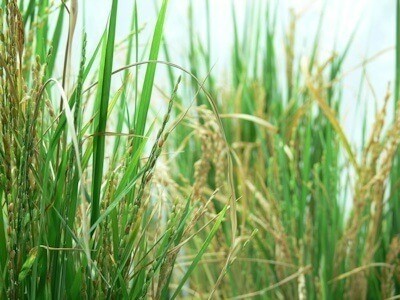Food Security AAAS 2016: Building Resilience Into the World's Food System
Author: ETH Zurich
Published: 2016/02/14 - Updated: 2020/07/25
Category Topic: Food Security - Related Publications
Page Content: Synopsis - Introduction - Main
Synopsis: ETH Zurich demonstrate how to build resilience into existing food systems creating higher level of food security using decision making models, big data, and information technology. The concept of food security is defined as including both physical and economic access to food that meets people's dietary needs as well as their food preferences.
Introduction
Three academic experts from Asia, Europe, and the United States address the complexity of food systems during the 2016 AAAS Annual Meeting in Washington D.C.
Main Content
The World Food Summit of 1996 defined food security as existing "when all people at all times have access to sufficient, safe, nutritious food to maintain a healthy and active life". Commonly, the concept of food security is defined as including both physical and economic access to food that meets people's dietary needs as well as their food preferences. Household food security exists when all members, at all times, have access to enough food for an active, healthy life. Food security incorporates a measure of resilience to future disruption or unavailability of critical food supply due to various risk factors including droughts, shipping disruptions, fuel shortages, economic instability, and wars.
Applying resilience thinking to food systems is a novel concept pioneered at ETH Zurich, The Swiss Federal Institute of Technology in Zurich, Switzerland. They demonstrate how to build resilience into existing food systems creating a higher level of food security using decision making models, big data, and information technology.
Collaboration between industry, food innovators, and all those along the food value chain fosters resilience into the world's food systems vital for dealing with the consequences of mass migration into urban areas that is taking place in many parts of the world.
Creating Resilience in Complex Food Systems
Johan Six, Professor of Sustainable Agroecosystems, ETH Zurich, The Swiss Federal Institute of Technology in Zurich, Switzerland tackles the complexity of the world's food systems. Intrinsically complex, food systems are difficult to predict and manage.
Comprising of different processes, value chains, actors and interactions, their outcomes affect multiple stakeholders and sectors in diverse and conflicting ways. Rather than trying to optimize individual components for specific risks, Six demonstrates how to improve the general resilience of food systems, with an approach that supports decision-making in practice and extends the resilience mind-set of stakeholders.

Food Security in Rapidly Growing Asian Cities
Many Asian countries are now experiencing rapid growth and development as people migrate from rural to urban areas.
In the past 45 years the urban population in Asia grew from around 600 million to 2 billion. This demographic revolution profoundly affects all aspects of food systems, from production to dietary choices.
Communities that were self-sufficient in terms of food resources for centuries, now rely on volatile international markets, even for basic products such as rice.
Peter Edwards, Director of the Singapore-ETH Center for Global Environmental Sustainability, a research outpost of ETH Zurich discusses the implications of rapid urbanization for food security. Edwards proposes ways of strengthening the resilience of food systems to create a higher level of food security.
Food System Informatics
About half of the fruit and vegetables consumed in the United States are produced in California in an agricultural region that, as the recent 4-year drought has shown, is highly vulnerable to the disruption of irrigation water supply.
Thomas P. Tomich, WK Kellogg Endowed Chair in Sustainable Food Systems at University of California, Davis, the top-ranked agricultural research university in the world, explores how new information technology and a data-flooded business environment will impact food and agriculture. He demonstrates how information technology supports the formation of an ecosystem between industry, investors, start-ups, and food innovators.
Further Information
- Meet us at AAAS 2016 Symposium: Food Systems: Building Resilience and Partnering Across Sectors.
- Sunday, February 14, 2016 at 3:00PM - 4:30 PM Coolidge (Marriott Wardman Park, Washington D.C., USA)
Attribution/Source(s): This quality-reviewed publication was selected for publishing by the editors of Disabled World (DW) due to its relevance to the disability community. Originally authored by ETH Zurich and published on 2016/02/14, this content may have been edited for style, clarity, or brevity.